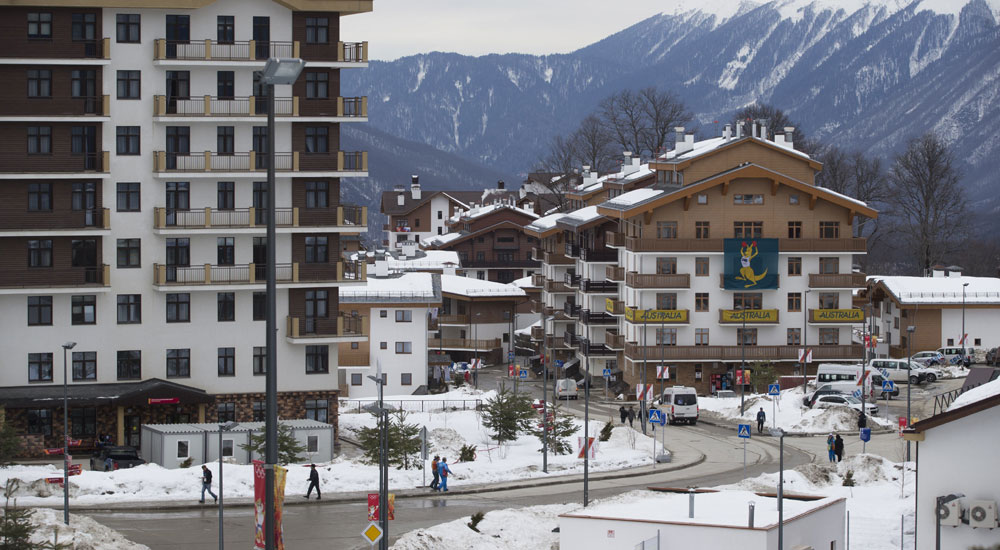Olympics: Australia bans athletes from Sochi city over security fears

A view of the building for the Australian team in the Mountain Village, where athletes will be placed during the Winter Olympics in Sochi, Russia, Tuesday, Jan. 28, 2014. Australia has banned its athletes from traveling into the city center of Sochi due to security concerns, its Olympic Committee said on Sunday. AP
SOCHI—Australia has banned its athletes who are taking part in the Winter Olympics in Russia from traveling into the city center of Sochi due to security concerns, its Olympic Committee said on Sunday.
Australia is sending a record 60 athletes to the Games, which run from February 7-23, but they have been told not to leave security zones in the coastal and mountain hubs for the duration of the Games.
Australian Olympic team chef-de-mission Ian Chesterman said the measures were based on his government’s travel advice for Russia and the Sochi region.
“We know that the Department of Foreign Affairs and Trade (DFAT) advice is to exercise a high degree of caution in Russia generally and in Sochi as well,” said Chesterman in an AOC statement.
“We think it is good practice to define what a degree of caution requires for our Olympic team.”
Chesterman said that athletes will be limited to locations and attractions within the security perimeters of the Olympic Park as well as the villages of Krasnaya Polyana, Esto-Sadok and Rosa Khutor.
Downtown Sochi a no-no
“Team members are not permitted to travel to downtown Sochi” which lies over 30 kilometres to the north of the main Games facilities, the statement added.
Security fears for the Games have been exacerbated by two suicide bombings in the southern city of Volgograd last month—Russia’s deadliest in three years—that killed 34 people.
However, International Olympic Committee spokesman Mark Adams said that the recommendation to avoid Sochi and keep within the security perimeter had not come from the IOC.
“We believe that security is being handled very well,” Adams told reporters. “This (Australia’s recommendation) is not a result of information from the IOC.”
Despite the restrictions, Chesterman believes the Australians already in Sochi are at ease.
“We feel very comfortable coming here, everybody here has already experienced a level of security is in place—it’s intense, but not heavy-handed,” he added.
“But we wanted to put some minor, but important, restrictions on our athlete movement during this period of time.”
Amid controversy about whether athletes should speak out about Russia’s now notorious anti-gay law or human rights, Chesterman said Australians were free to say what they liked.
“In terms of expressing your views, not only do we allow, we encourage. It’s something we’ll see over the period of the Games, not only from our athletes, but athletes around the world,” he said.